(1987, Buenos Aires, Argentína) studied Camera at ENERC Film School and attended the film workshop of University Di Tella. He has shot several acclaimed short documentary films and three feature films including Años Luz (Light years, 2017) documenting Lucrecia Martel shooting her film Zama (2017).
Archive of Directors
Lori Malépart-Traversy
(Montreal, Kanada) is a Canadian animator dealing mostly with animated document. Her short films have been screened at festivals all around the world.
Maria Vilkovisky, Ruth Jenrbekova
Maria Vilkovisky (1971, Alma-Ata, Kazakhstan) and Ruth Jenrbekova (1973, Alma-Ata, Kazakhstan) are both artists from Alma-Ata in Kazakhstan where they run a cultural centre Kreolex. They focus mainly on the question of identity. Their performances connect various formats from sketches, poetry reading, songs and physical theatre to lectures, screenings and discussions.
Iva Radivojević
(1980, Belgrade, Yugoslavia) grew up in Yugoslavia and on Cyprus. When she was 18, she moved to New York. Her feature debut Evaporating Borders, 2013 was part of several film festivals and was introduced in Documentary Competition at MFF Bratislava.
Mária Martiniaková
Penny Lane
(Lynn, USA, 1978) is an acclaimed American director. Her documentary films Our Nixon, 2013, Nuts! (2016) and The Pain of Others (2018) were introduced at the festivals in Rotterdam, Sundance or New York, where they received several prestigious awards. In 2012, she got in the Filmmaker Magazine’s list of 25 most interesting faces of the independent film.
Julian Schnabel
(1951, New York City, New York, USA) – graduated in Arts at the University of Houston in 1973. His works of art have been exhibited all over the world. Later, he started to engage in film, wrote a script, and directed the feature film Basquiat (1996). Schnabel’s second film Before Night Falls won the Special Jury Prize at the Venice IFF in 2000 and Javier Bardem was nominated for an Oscar as Best male actor. For his film Le Scaphandre et Le Papillon (The Scaphandre and The Butterfly) Schnabel received the Best director award at the 2007 Cannes Film Festival. After having shot the concert performance of Lou Reed’s album Berlin (2007), he made the drama Miral (2012) and the biographical drama At Eternity’s Gate.
Steve McQueen
(1969, London, UK) is a visual artist and film director. In 1999 he received Turner Prize for his video inspired by Buster Keaton. In 2008 he received Golden Camera for the best debut for his feature film Hunger, FIPRESCI Prize in Cannes, FIPRESCI Prize in Venice for the film Shame, 2011 and the Oscar and BAFTA for 12 Years a Slave. In 2014 he received the European film award for Outstanding European Achievement in World Cinema.
David Lowery
(1980, Milwaukee, Wisconsin, USA) is a great talent of the American independent cinematography. His shot his first film Lullaby when he was nineteen. Some of the following projects were financed with the support of the Austin Film Society. The big break in his career came with the film Ain’t Them Bodies Saints (2013), that competed at Sundance and it was introduced during Critics’ Week in Cannes. After the family fantasy Pete’s Dragon, 2016, he shot A Ghost Story, 2017 which was very well received by the critics.
Radu Jude
(1977, Bucharest, Romania) is one of the most significant contemporary Romanian directors. In several films, he deals with the history we tend to push out from the collective memory. His film Aferim! (2015) received the award for Best director at Berlinale festival, the Special Jury Prize in Locarno for the film Scarred Hearts (Inimi cicatrizate, 2016) and the Crystal globe in Karlovy Vary for his latest film. His previous films were awarded at Sundance, in Oberhausen, Sarajevo or at IndieLisboa.
Barbara Visser
(1966, Haarlem, Netherlands) is a visual artist, dealing with the questions of representation, the relationship between the original work and copy and the depiction of historic and cultural narratives in art, design and science. Between 2016 and 2018, she was the head of the IDFA festival.
Johann Lurf
(1982, Vienna, Austria) is a filmmaker and visual artist. He studied at the Vienna Academy, he was taught by Harun Farocki. His practice involves observational and documentary filmmaking specializing in the field of structural cinema and deals with the found footage which is strongly focused on film language itself.
Wanuri Kahiu
(1980, Nairobi, Kenya) is a part of the young generation of Kenyan artists. Her short films were screened on festivals all around the world and her short film Pumzi (2009) received an award on Venice film festival. Rafiki is her second feature film.
Federico Biasin
is a DOP, producer and filmmaker. He has created visual and sound art installations for multiple exhibitions and realized many commercials.
Georgio Ferrero
is a composer, director and photographer from Turin. He has composed and produced soundtracks for dozens of films, theatrical performances and installations.
Eva Štefankovičová
(1940, Piešťany, Slovakia) is one of the first Slovak film and TV directors. In film she went from operating a clapperboard to editing and working as assistant director. She has worked with both Peter Solan and Elo Havetta. In 1982 she debuted with a children’s feature film Scrawls, and her other feature films, such as Salty Sweets (1985) and Musician in the Bath (1988), deal with teenager problems. She has won significant domestic awards for her documentary work as well.
Claire Denis
(1946, Paris, France) is currently one of the most appraised European authors. She won the Golden Leopard (Nenette and Boni, 1996) in Locarno and many more awards from Cannes (Let the Sunshine In, 2017), Berlin, Rotterdam (both for Beau travail) or San Sebastian (High Life, 2018). She spent her childhood in the colonized West Africa and regularly addresses the French colonial past, issues of identity and deracination in her work.
Katarína Kerekesová
(1974, Žilina, Slovakia) studied animation at the Faculty of Film and Television of the Academy of Performing Arts in Bratislava. In 1997 she made her debut with the combined short film Lovers without Clothes (Milenci bez šiat), followed by the mid-length Origin of the World (Pôvod sveta, 2002), animated music film Stones (Kamene, 2010) and the series Mimi & Líza (Mimi a Líza, 2012-2018) and The Websters (Websterovci, 2016-2017). In 2009, she founded the production company Fool Moon.
Ivana Šebestová
(1979, Poprad, Slovakia) studied animation at the Faculty of Film and Television of the Academy of Performing Arts in Bratislava. As an animator she worked on Pik and Nik (Pik a Nik, 2006, d. Martin Snopek), Stones (Kamene, 2010, d. Katarína Kerekesová) and Mimi & Líza (Mimi a Líza, 2012-2018, d. Katarína Kerekesová).
Her original animated films Four (Štyri, 2007) and Snow (Sneh, 2013) won the Sun in the Net national film award as well as other international festival awards. Yellow (Žltá, 2017) completes the author’s trilogy of films about the depth and “multi-layeredness” of the human soul.
Tonia Mishiali
(1973, Famagusta, Cyprus) is a Cypriot director, screenwriter, producer and also one of the film directors of the Cyprus Film Days International Festival. Her short films have been shown in Locarno, Pusan, Sarajevo, or Bristol Encounters. Pause is her feature debut.
Diego Galan
(1946, Tanger, Morocco) is a director and a critic. He has published more than ten books on film and shot several documentaries and TV series. From 1986-1989 and 1995-2000 he was the director general of the San Sebastian IFF.
Adam Sedlák
(1989, Prague, Czech Republic) graduated from the Film Academy of Miroslav Ondříček in Písek. He made several short films, but came to recognition mainly with the web series Semestr (2016). Domestique (2018) is his feature debut
Tomáš Bojar
(1981, Prague, Czech Republic) studied political science and international relations with focus on political philosophy and later law. He worked as an editor and published reviews and essays on literature as well as music. As part of a creative duo with Pavel Abrahám, Bojar co-wrote multiple film projects, such as Czech RAPublic (Česká RAPublika, 2008) or Two Nil (Dva nula, 2012 – screened at 2012 Bratislava IFF Documentary Competition). Together with Rozálie Kohoutová, he directed the film FC Roma (2016).
Wolfgang Fischer
(1970, Vienna, Austria) studied psychology and painting at the University of Vienna as well as film and video at the Kunstakademie Düsseldorf under Nan Hoover. From 1996 to 2001 he took a degree in film and television at the Academy of Media Arts Cologne. In 2002 he attended a course in how to work with actors led by Mark Travis in Poland. In 2005 he received a scriptwriting scholarship for the Munich Screenplay Workshop where he developed the script for his debut film What You Don’t See (Was du nicht siehst).
Lukas Dhont
(1991, Belgium) graduated with a diploma in audio-visual arts from the KASK Academy in Ghent. His short films, Headlong (Corps Perdu) and L’Infini, received numerous prizes, namely from the Ghent Film Festival and the Louvain International Short Film Festival. L’Infini also qualified for the Oscars in 2015.
Throughout his studies, he focused on fiction but also explored the possibilities offered by the documentary genre.
Girl, his first feature fiction film, won several awards in Cannes 2018 and is Belgian entry for the Oscar.
Vitaly Mansky
(1963, Lviv, Ukraine) is one of the most prominent Russian and European documentarists of now. He shot more than 30 films, among which Under the Sun (V luchakh solnca, 2015) also appeared in Slovak distribution, and produced many more. Mansky is the founder and director of the documentary film festival Artdocfest.
Marek Fischer, Jakub Cheban, Michaela Hošková
Michal Baránek
Kateřina Hroníková
Jakub Červenka
(1983, Prague, Czechoslovakia) has rich experience in film, advertisement and music video production. In 2015 he produced the feature puppet film The Little Man (Malý Pán). Talks with TGM (Hovory s TGM, 2018) is his directorial feature debut.
Šimon Šafránek
(1977, Prague, Czech Republic) is a filmmaker, writer and journalist. In the last few years, he has been shooting video clips for multiple Czech and foreign projects. Šafránek is the author of music documentaries such as The Myth (2003) about Nick Cave’s fans or The Land of Cover Bands (Země revivalů, 2016) discussing the popular phenomenon of cover bands in the Czech Republic. King Skate is his feature debut.
Tuva Novotny
(1979, Stockholm, Sweden) started in Swedish daytime soaps, moved to the big screen, found steady work in Danish cinema around 2000 and, ten years later, did the same in Norway. This truly Scandinavian actress (who speaks all three languages almost perfectly) has now begun her directorial career. Blind Spot (Blindsone, 2018) premiered in Toronto’s 2018 Discovery section and afterwards was awarded the Silver Seashell for its leading actress, Pia Tjelta, at San Sebastián Film Festival.
Arantxa Echevarría
(1968, Bilbao, Spain) is director, screenwriter and film producer. She studied Image Sciences at the Madrid University and film production at the Sidney Community College. Her debut feature film Carmen & Lola (Carmen y Lola, 2018) had a premiere at Directors’ Fortnight of this year’s Cannes IFF.
Rasmus Kloster Bro
(1985, Sennels, Denmark) moved to Copenhagen and he was accepted to the independent film school Super16 in 2009 as part of a class of 8 directors and 8 producers. His work also includes radio fiction, music, video installation and short films of which Kiss My Brother (Kys min bror, 2010) won Best narrative short at Landlocked Festival and Barvalo (2012) won Silver Egg at Emir Kusturica’s festival Kustendorf.
Darya Zhuk
(Belarus) has been obsessing about filmmaking long enough to see her short films selected to a number of respected film festivals. In 2015, she won the best female writer-director award from New York Women in Film and Television, as well as the best short at the oldest film festival in Belarus, Listapad for her The Real American (2015). She is a graduate of Columbia University MFA program in directing. Darya lives and creates between Minsk and Brooklyn. Crystal Swan (Khrustal, 2018) is her first feature fiction film.
László Csuja
(1984, Debrecen, Hungary) graduated from the Academy of Film and Drama of Budapest in 2012. He directed a few theatrical plays as well as short and documentary films – e.g. Nine Months War (Kilenc hónap háború, 2005), Phosphorus (Foszfor, 2009), …Meanwhile in Budapest (Nekem Budapest, 2013 – segment “Threesome”), The Clogging (A dugulás, 2013). His first feature fiction film Blossom Valley (Virágvölgy, 2018) premiered at this year’s Karlovy Vary festival.
Li Cheng
born and raised in China and moved to the USA in 1999. Cheng holds PhD from the Rutgers University. He has been world-nomad since 2016. A keen observer of people, society and crisis, he’s travelled extensively in the USA and has broad international experience in Asia, Europe, Latin America and North Africa. He made his first feature fiction film Joshua Tree (2014 –included in the Competition of First and Second Fiction Features of 2014 Bratislava IFF) in USA. He spent most of the last two years in Guatemala where he shot his second film José (2018).
Meryem Benm’Barek
(1984, Rabat, Morocco) attended the National Institute of Oriental Languages and Civilizations in Paris, studying Arabic languages. She later studied directing in 2010 at the INSAS film school in Brussels. Benm’Barek-Aloïsi directed five short films in Brussels, gaining attention for Nor (2013) and Jennah (2014). Benm’Barek-Aloïsi has created exhibitions in sound art at the Victoria and Albert Museum in London. Her feature debut film Sofia (2018) won the best screenplay award at Cannes, Un Certain Regard section in 2018.
Elizaveta Stishova
(Moscow, Russia) has produced a number of well-regarded shorts, including 2016’s The Seagull (Chayka). She has spent most of her film career in Kyrgyzstan working with Bishkek-based Aitysh Film. She was assistant director of Queen of the Mountains (Kurmanjan datka, 2014, dir. Sadyk Sher-Niyaz), selected as the Kyrgyz entry for the Best Foreign Language Film at the Academy Awards. A graduate of the lauded Higher Course for Scriptwriters and Film Directors, Stishova also participated in the 2014 Berlinale Talents Campus.
Mila Turajlić
(1979, Belgrade, Serbia) studied political science and film production, and holds a PhD from the University of Westminster. She is a co-founder of Belgrade’s Magnificent 7 Festival, which showcases European documentaries. Her feature debut Cinema Komunisto (2010) premiered at IDFA and was included in the Documentary Competition of Bratislava IFF. The Other Side of Everything (Druga strana svega, 2018) is her second feature film.
Albert Dupontel
Albert Dupontel (1964, Saint-Germain-en-Laye, France) is an actor, writer and director who studied medicine for four years but chose to become a comedian. He has 50 acting credits under his belt, including controversial Irreversible (2002), inspiring Love Me No More (2008) or award-winning 9-Month Stretch (2013) that brought him César for Best Original Screenplay plus three César nominations for Best Film, Best Directing and Best Actor. He has directed seven films so far, all of them based on his own script. See You Up There is his sixth and latest feature-length film.
Martin McDonagh
(1970, London, United Kingdom) is a writer and director of Irish ancestry.
Although he writes primarily stage plays, he has cited Martin Scorsese,
David Lynch, Terrence Malick and Quentin Tarantino among his influences.
His debut, Six Shooter (2004), won the Academy Award for Best Short Film.
Four years later, he earned an Oscar nomination for Best Original Screenplay
to his feature-length debut, In Bruges (2008). His second feature film,
Seven Psychopaths (2012), won People’s Choice Award at the Toronto IFF.
Three Billboards Outside Ebbing, Missouri is his third feature film.
Guillermo del Toro
(1964, Guadalajara, Mexico) is a film director, screenwriter, producer, and novelist
who developed an interest in filmmaking in his early teens. His first feature-length film,
Cronos (1993), won eight academy awards in Mexico and the International Critics
Week prize at Cannes, opening him the gates to Hollywood. Since then, he has alternated
between Spanish-language dark fantasy films such as The Devil’s Backbone (2001)
and Pan’s Labyrinth (2006) and mainstream American action movies such as Mimic (1997),
Blade 2 (2002) or the Hellboy series. The Shape of Water is his tenth feature film.
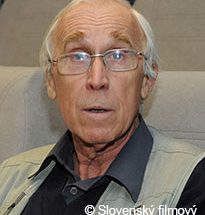
František Jurišič
(1942, Nitra, Czechoslovakia) is a Slovak film director, animator
and pedagogue. His motion pictures have garnered awards at domestic and international
film festivals. He directed animated films A Wise Piglet (1982), Figures
and Figurines, A Night Tale (both 1983), Cock-A-Doodle-Doo (1985) as well as several
TV series such as The Tiniest Heroes (1984-90) or Bratislava Tales (1991-93).
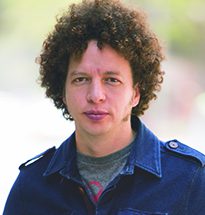
Michel Franco
(1979, Ciudad de México, Mexico) ranks among the most prominent
Mexican filmmakers. His films regularly appear and attract accolade at the
Cannes IFF; After Lucia (Después de Lucía, 2012) won Un Certain Regard Award
here while Chronic (2015) clinched Best Screenplay award and April’s Daughter
won Special Jury Prize of the Un Certain Regard section. Besides his own films,
Franco has also produced works by other directors, including Gabriel Ripstein’s
600 Miles (600 Millas – Best Debut at Berlinale 2015) or Lorenzo Vigas’ From Afar
(Desde allá – Golden Lion at the Venice IFF in 2015).
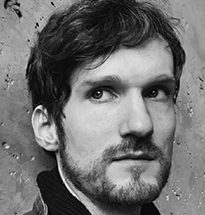
Patrick Buhr
(1984, Karlsruhe, Germany) is a media artist and animation freelancer currently
based in Cologne. He studied philosophy in Berlin and media art at the Academy
of Media Arts in Cologne.
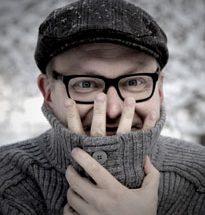
Teemu Nikki
Teemu Nikki (1975, Finland) has written and directed 16 short films since 1995, including one short documentary. In 2012, he made his first feature-length film, Simo Times Three. Three years later, he made another fiction feature, Lovemilla, based on
a TV series of the same name. Currently, he is applying the spit and polish on his latest feature film, Euthanizer.
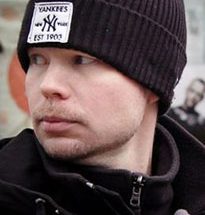
Mikko Kuparinen
Mikko Kuparinen (1979, Finland) collected main prizes at international film festivals for each of his last three short films. His fiction debut was a romantic comedy, Body Fat Index of Love (2012). His English-language feature-length debut, 2 Nights till Morning, premiered at the Montreal IFF 2015, winning the Best Director award.
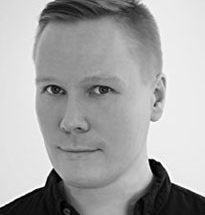
Miikka Leskinen
Miikka Leskinen (1978, Finland) is a film editor and director who graduated from the editor’s program at London’s National Film and Television School in 2007. He was the editor for Virunga (2014), a documentary feature about people risking their lives to save the last of the world’s mountain gorillas that won Primetime Emmy for cinematography and earned Academy Award and BAFTA nominations.
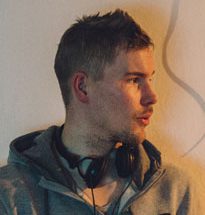
Jussi Hiltunen
Jussi Hiltunen (1984, Rovaniemi, Finland) once witnessed a rare street shooting in his hometown of Rovaniemi, which inspired him to shoot All Hallows’ Week. Besides this film, he has also made two other shorts, The Legacy and Winterheart, in his native town where he used a film camera for the first time at the age of twelve.
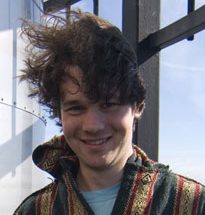
Pekka Veikkolainen
Pekka Veikkolainen (1982, Finland) majored in graphic design at the University of Art and Design in Helsinki. He has focused on animation and illustrations since 2000.
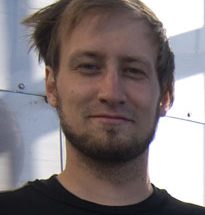
Hannes Vartiainen
Hannes Vartiainen (1980, Finland) graduated from the Helsinki Polytechnic Stadia in 2004, majoring in film directing. Together with Veikkolainen they have made several films.
Jouni West
Jouni West (1990, Finland) made his first animation, Áigin, three years ago, basing it loosely on Norwegian filmmaker Nils Gaup’s Pathfinder (Ofelaš, 1987), a Sámi-language adventure drama that garnered an Academy Award nomination for Best Foreign Lan- guage Film. His dream is to make a feature-length animated film.
Patrícia Gyenesová
Barbora Vaculová
Róbert Bošeľa
Alžbeta Hrušovská
Michal Fulier
Marek Jasaň
Barbora Sliepková
Barbora Bárková
Mária Pinčíková
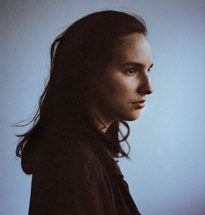
Martina Buchelová
Martina Buchelová (1988, Rimavská Sobota, Czechoslovakia) is currently pursuing her Master’s Degree in film and television directing at the Academy of Performing Arts in Bratislava. In 2015 her short film, Green Line (2014), was selected for the Future Frames section at the Karlovy Vary IFF. Her latest picture, Magic Moments (2016), had a world premiere at the Toronto IFF.
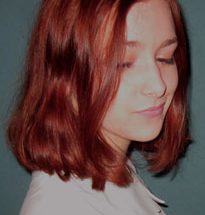
Eva Sekerešová
Eva Sekerešová (1992, Stará Kremnička) nedávno ukončila magisterské štúdium animovanej tvorby na Vysokej škole múzických umení v Bratislave so svojím krátkym animovaným filmom Jahodové dni. Autorka rada vytvára charaktery založené na stereotypoch, pričom ich dostáva do rôznych vtipných a trápnych situácií, ktoré mnohí poznáme zo života.
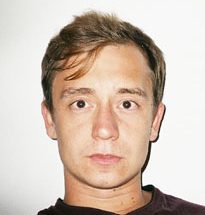
Michal Blaško
Michal Blaško (1989, Bratislava, Československo) je študentom magisterského stupňa Ateliéru hranej réžie na Filmovej a televíznej fakulte VŠMU v Bratislave. Jeho krátkometrážny film Strach (2015) mal premiéru na MFF v San Sebastiane. Atlantída, 2003 (2017) bola uvedená v sekcii Cinéfondation na MFF v Cannes i v sekcii Prvé podanie na MFF Karlovy Vary.
Eddie Cline
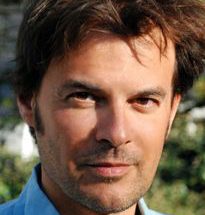
François Ozon
(1967, Paris, France) graduated in film studies from Université
de Paris 1 and in film directing from La Fémis. As an auteur he continues to
develop his cinematic style, being well-versed in cinema history and inspired by
his favourite filmmakers such as Douglas Sirk or Rainer Werner Fassbinder. Like
them, Ozon has transformed his fascination with the inner world of women into
a great number of complex female characters with secrets. Slovak cinemagoers
are familiar with his previous pictures, including 8 Women (2002), Swimming Pool
(2003), 5×2 (2004), Time to Leave (2005), Angel (2007), Potiche (2010), or Young
& Beautiful (2013).
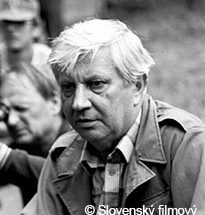
Štefan Uher
Štefan Uher (1930, Prievidza, Czechoslovakia – 1993, Bratislava, Slovakia) remains one of the most prominent auteurs of the Slovak cinema. He graduated from Prague’s FAMU, majoring in documentary filmmaking, and soon began his professional career in the domain of documentary and short films before he gravitated toward fiction. His second fiction feature, Sun in the Net (Slnko v sieti, 1962), is still considered the work that initiated the Czechoslovak new wave in cinema. He also made a number of other remarkable films including The Organ (Organ, 1964), Miraculous Virgin (Panna Zázračnica, 1966), The Three Daughters (Tri dcéry, 1968), If i Had a Gun (Keby som mal pušku, 1971) or She Kept Asking for the Moon (Pásla kone na betóne, 1982).
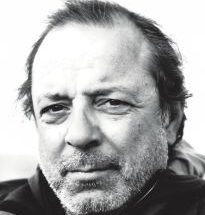
Semih Kaplanoğlu
Semih Kaplanoğlu (1963, Izmir, Turkey) is an award-winning film director, producer and screenwriter. His debut feature, Away From Home (Herkes Kendi Evinde, 2001), won Best Director award at the Singapore IFF and his second feature, Angel’s Fall (Meleğin Düşüşü), premiered at the Berlinale Forum in 2005. After that, he embarked on producing and directing the Yusuf Trilogy: Egg (Yumurta, 2007) premiered in Cannes, Milk (Süt, 2008) premiered in Venice and Honey (Bal, 2010) won the Golden Bear Award at Berlinale. Kaplanoğlu is widely regarded as one of the most accomplished and influential directors in Turkish cinema.
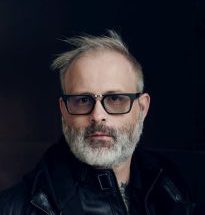
Denis Côté
Denis Côté (1973, Perth-Andover, New Brunswick, Canada) has made ten feature-length films, both fiction and documentary, since his debut in 2005. He is a darling particularly at the IFF in Locarno, which has screened five of his films and two of them – All That She Wants (2008) and Curling (2010) – were decorated for best directing. Four of his other films have been presented at Berlinale, including Vic and Flo Saw a Bear, which won the Alfred Bauer Award in 2013 for a “feature film that opens new perspectives on cinematic art”. His latest film so far, A Skin So Soft, premiered this year at Locarno.
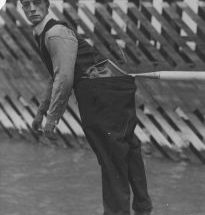
Buster Keaton
Buster Keaton (1895, Piqua, Kansas, USA – 1966, Woodland Hills, California, USA) became famous under the household name of Frigo thanks to his unmistakable poker face in the silent film era. With the onset of sound film his star set and didn’t rise again until the 1950s. His most legendary motion pictures include Sherlock Jr. (1924) and The General (1927).

Charles Chaplin
Charles Chaplin (1889, London, United Kingdom – 1977, Corsier-sur-Vevey, Switzerland) is considered one of the early pioneers of cinema. He became world-famous as Tramp in the silent film era. From the plethora of legendary films he made, let us mention The Kid, Modern Times or The Great Dictator. In 1972, he won the Honorary Academy Award for “the incalculable effect he has had in making motion pictures the art form of this century”.
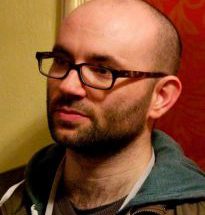
Robert Greene
Robert Greene (1976, Charlotte, North Carolina, USA) is a director, editor and film essayist. His filmography includes the Gotham Awards-nominated Actress (2014), Fake It So Real (2012), and Kati with an i (2010). Greene’s editing credits include Queen of Earth (2015) and Listen Up Philip (2014) by Alex Ross Perry, Approaching the Elephant (2014) by Amanda Rose Wilder, and Christmas, Again (2014) by Charles Poekel. Robert writes for the Sight & Sound magazine and is the filmmaker-in-chief at the Murray Center for Documentary Journalism at the University of Missouri.
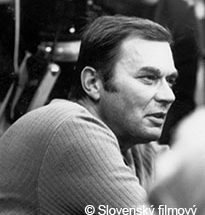
Otakar Krivánek
Otakar Krivánek (1931, Levoča, Czechoslovakia – 1997, Bratislava, Slovakia) was a Slovak director and scriptwriter. Although he majored in stage directing at the Academy of Performing Arts in Bratislava, he soon began to shoot newsreels (in 1958) and later drifted toward documentary films. He co-authored The Time We Live In, a documentary that captures the democratisation process in Czechoslovakia in the 1960s. In the following decade, he delved into making fiction features, especially films for children and youngsters.
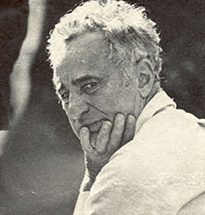
Elia Kazan
Elia Kazan (1909, Constantinople, Ottoman Empire, now Istanbul, Turkey – 2003, New York City, New York, USA) ranks among the most influential post-war American directors. He was the co-founder of the Actors Studio, which pioneered a new type of film acting, so-called method acting. Besides the Honorary Academy Award, he also won two Academy Awards for directing (Gentleman’s Agreement, On the Waterfront). Before he was awarded the Honorary Golden Berlin Bear, his films scored success not only at Berlinale (Man on a Tightrope) but also in Cannes (East of Eden), Venice (Panic in the Streets, A Streetcar Named Desire and On the Waterfront) or San Sebastian (America America).

Soňa Maletzová
Soňa Maletzová (1992, Bratislava, Czechoslovakia) is a documentary directress and photographer. This year, she graduated from Prague’s Academy of Performing Arts (FAMU) with her mid-length documentary on Marián Varga. As a photographer, she has held exhibitions in Slovakia, the Czech Republic and Poland. Her series on Bratislava’s suburbs was acknowledged by the Slovak Press Photo. She also makes music videos, working primarily with the band called Queer Jane.
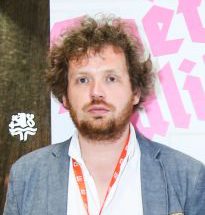
Vít Klusák
Vít Klusák (1980, Prague, Czechoslovakia) together with his classmate Filip Remunda founded a production company Hypermarket Film while studying documentary filmmaking at Prague’s FAMU. This company later produced their joint debut, Czech Dream (Český sen, 2004), a documentary comedy about opening a fake hypermarket, which explores the power of advertising. The company continues to produce author-driven documentaries, including a television cycle, Czech Journal (Český žurnál, 2013 – 2017). Klusák has repeatedly proven a great instinct for issues and filmmaking methods that provoke a vivid public discourse.
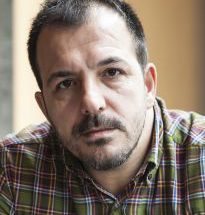
Gürcan Keltek
Gürcan Keltek (1973, Izmir, Turkey) graduated in film at Dokuz Eylül University in his hometown. Upon graduation, he directed several documentary shorts including Overtime (2012), which was selected at Visions Du Reel and DOK Leipzig.
His medium-length film, Colony (2015), was screened at FIDMarseille and earned him the Best Balkan Newcomer Award at Dokufest. His first fiction feature film, Meteors (2017), premiered at the Concorso Cineasti del presente section of the Locarno IFF.
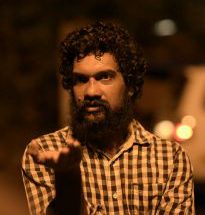
Sanal Kumar Sasidharan
(1977, Perumkadavila, India) completed his studies of zoology at VTM NSS College
in Dhanuvachapuram. Upon his post-graduate studies of law, he began to work
as a lawyer before drifting toward cinema. In 2001, he founded Kazhcha Film Forum,
a crowdfunding platform to support independent filmmaking that also financed
his first motion pictures. Sexy Durga is his third feature-length film that won
the main award, Hivos Tiger, at the Rotterdam IFF in 2017.
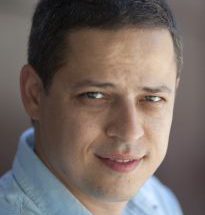
Bojan Vuletić
(1977, Belgrade, Yugoslavia) graduated from the Faculty of Dramatic
Arts in Belgrade. As a co-writer, he collaborated with Stefan Arsenijević on an
omnibus film, Lost and Found (Izgubljeno-nađeno, 2005), and a feature film, Love
and Other Crimes (Ljubav i drugi zločini, 2008), which premiered at the Berlinale
and won two Best Script awards at national festivals. His first feature film, Practical
Guide to Belgrade with Singing and Crying (Praktičan vodič kroz Beograd sa
pevanjem i plakanjem, 2011), premiered at the Karlovy Vary IFF in the East of the
West competition and won several national and international awards.
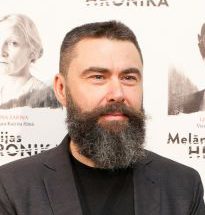
Viesturs Kairišs
(1971, Riga, Latvia) is an opera, film and theatre director. Since
his graduation from the Latvian Academy of Culture, he has established himself
as an acclaimed director of operas in Latvia and Germany. Kairišs has directed
four documentary and six fiction features.
He made his debut in 1998 with a short documentary, The Train. His first feature-
-length movie, Leaving by the Way (Pa celam aizejot, 2002), won Latvian National
Film Award for the best feature, screened in the official competition of the Karlovy
Vary IFF and received an award for the best debut at the Raindance Film Festival.
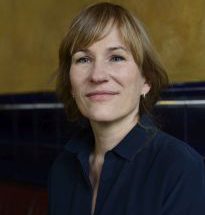
Valeska Grisebach
(1968, Bremen, Federal Republic of Germany) majored in German studies
and philosophy at universities in Berlin, Munich and Vienna and later
completed her studies of film directing in Vienna. Her graduation film,
Be My Star (Mein Stern, 2001), brought her a nomination for Adolf Grimme Award
in 2002 and the FIPRESCI Award at the Toronto IFF. Her second motion picture,
Longing (Sehnsucht, 2006), was chosen for the main competition at Berlinale.
Western (2017) is her third feature-length film.
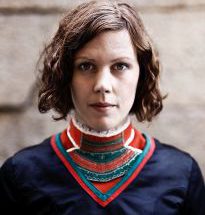
Amanda Kernell
(1986, Umeå, Sweden) has roots in two cultures as she has a Swedish mother
and a Sámi father. Since 2006, Kernell has directed several acclaimed shorts
for the Direktörn & Fabrikörn production company, including
The Holiday Sister (Semestersystern) and Sharing All (Att dela allt). She has studied
writing for the stage and audio-visual media at Biskops-Arnö and has completed
the Filmpool Nord course entitled “Screenwriting for low-budget feature films”.
In 2009, she was accepted by the National Film School of Denmark to its prestigious
four-year Film Directing programme.
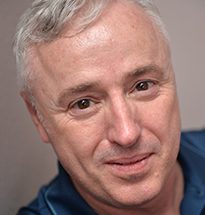
Robin Campillo
(1962, Mohammédia, Morocco) is a French director who drew
attention to himself as co-screenwriter and editor of films by French director
Laurent Cantet, for instance his drama The Class (Entre les murs, 2008), which
won Golden Palm at the Cannes IFF. His feature-length directorial debut, They
Came Back (Les Revenants, 2004), inspired a successful television series of the
same name. His second film, Eastern Boys, won the Venice Horizons Award in
2014. For his most recent picture, 120 BPM (Beats per Minute), Campillo received
Grand Prix of the Jury along with the FIPRESCI Award at this year’s Cannes IFF.
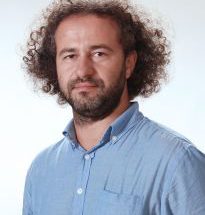
Adrian Silisteanu
Adrian Silisteanu (1975, Bacău, Romania) graduated from the National University of Theatre and Film in Bucharest, majoring in cinematography, while also studying digital cinematography at the National Audiovisual Institute in Paris. He worked as DP on four feature films directed by Adrian Sitaru as well as on The Worthy (2016), the latest feature by Ali Mosafa. Written/Unwritten is his second short film.
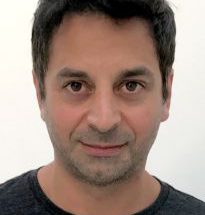
Jason Raftopoulos
(1970, Melbourne, Australia) lived in New York City for over
ten years, working in a theatre, before enrolling to a film school. His short films
have screened in Australia and internationally. His documentary, From Dope to
Dalai Lama, won the IF Award for Best Short Documentary. His graduation short
film, Father’s Day, won Best Film and Best Screenplay awards at the Swinburne
University Awards. West of Sunshine, whose plot is largely based on Father’s Day,
is his first feature-length film.
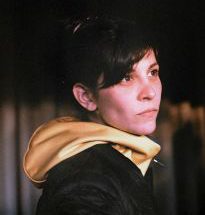
Natalia Garagiola
(1982, Buenos Aires, Argentina) is the writer and director of
short films, López’s Corner (Rincón de López) and Mares and Parakeets (Yeguas
y Cotorras), that premiered during the Critics’ Week at the 2012 Cannes IFF. Sundays
(Sunnuntaisin, 2014), a short film she co-wrote and co-directed with Kræsten
Kusk, was selected for Directors’ Fortnight at Cannes. Her solo feature directorial
debut, Hunting Season was screened as part of the International Critics’ Week at
this year’s Venice IFF, winning the SIAE Audience Award.
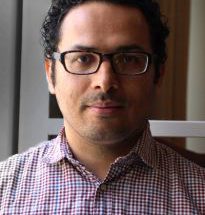
Ali Asgari
(1982, Tehran, Iran) studied filmmaking in Italy. Two of his short films,
More Than Two Hours (Bishatar az do Saat, 2013) and The Silence (Il Silenzio, 2016,
co-directed by Farnoosh Samadi), were in competition at the Cannes IFF. His
short film, The Baby (2014), premiered in competition of the Venice IFF. His short
films have been screened at more than 600 film festivals around the world and
won more than 150 international awards. Disappearance is his first feature film.
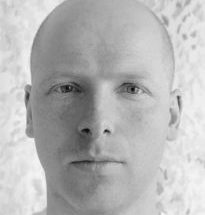
Aleksander Johan Andreassen
Aleksander Johan Andreassen (1982, Bodø, Norway) is an artist and filmmaker with an MFA degree from the Konstfack University College of Arts, Crafts and Design in Stockholm. His works have been screened at group exhibitions and film festivals worldwide, most recently Clearings (Lysninger, 2016), All Thoughts Are Kin (Alle tankers slekt, 2015) and Roy (2014).
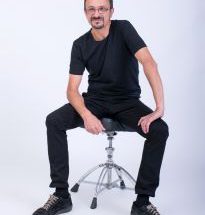
Alen Drljević
(1968, Sarajevo, Yugoslavia) graduated from the Academy of Performing
Arts in Sarajevo. His graduation short film, Paycheck (Prva plata, 2005),
was nominated for the European Film Award. He focused his first feature-length
documentary, Carnival (Karneval, 2006), on the dramatic events of the 1990s that
put former Yugoslavia through a series of civil wars. He has worked on several
successful films as assistant director, including three films by Jasmila Źbanić:
Grbavica (2006, Golden Bear at the Berlinale), On the Path (2010), and For Those
Who Can Tell No Tales (2013). Men Don’t Cry is his fiction debut.
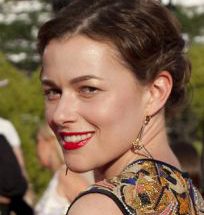
Elena Brodach
Elena Brodach (1984, Moscow, USSR) graduated from the Moscow Architectural Institute in 2006. Currently, she is studying film directing at High Courses for Scriptwriters and Film Directors in Moscow, Russia, under the tutorship of Vladimir Khotinenko, Pavel Finn, and Vladimir Fenchenko. Next (2016) is her second film.
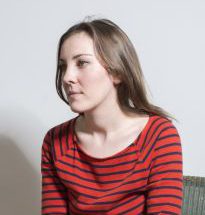
Léonor Serraille
(1985, Venissieux, France) earned a master’s degree in General
and Comparative Literature at the Sorbonne University and studied cinema at the
National Film School, La Fémis. Her first feature film, Montparnasse Bienvenüe,
premiered in Un Certain Regard section of this year’s Cannes IFF, winning the
Caméra d’Or award for the best debut of the festival.
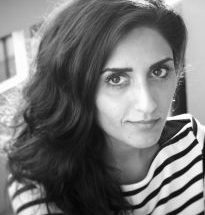
Soleen Yusef
(1987, Duhok, Iraq) was born in Iraqi Kurdistan and came to Germany
as a refugee at the age of nine. In 2008 she began to study fiction film directing
at the Baden-Wurttemberg Film Academy. Her mid-length film, Trattoria, premiered
at the Berlin IFF in 2012. House without Roof is her graduation film, which won
Grand Prix Special des Amériques at the Montreal World Film Festival in 2016.
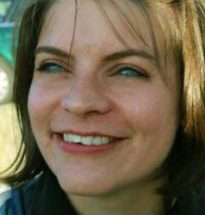
Katie Davies
Katie Davies is an artist dedicated to exploring the construction of identities, their reflections and manipulations. Issues of nationalism, violence and democracy form the centrepiece of her videos and installations, most remarkable of which include Commonwealth (2009), The Laws of the Marches (2015), and Sleeping in Public (2017).
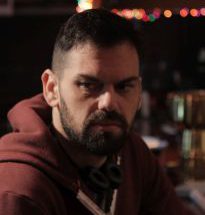
Adam Keleman
(1983, Woodland Hills, California, USA) wrote, directed and produced
Going Back, a short film that premiered at the SXSW Film Festival in 2010.
The film went on to screen at the BFI London Film Festival and Cannes Short Film
Corner. As a film journalist and critic, he has written for Soma Magazine, AOL Moviefone,
Slant, and Little Joe. To produce his first feature-length film, Easy Living,
Adam obtained a Jerome Foundation production grant and a Film Independent
AbelCine grant. He lives and works in Brooklyn, NY.
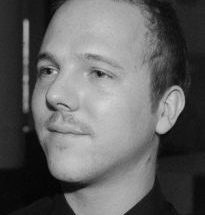
Jules Comes
Jules Comes (1984, Roermond, Netherlands) majored in audio-visual arts at the Sint-Lukas School of Arts in Brussels. In his films, he strives to focus on socially relevant issues. After two short films, City Child (Stadskind, 2010) and Pilgrim (Pelgrim, 2011), he graduated in 2012 with This Is Ronald (Dit Is Ronald). Comes lives in Brussels and currently is working on several new feature and documentary projects
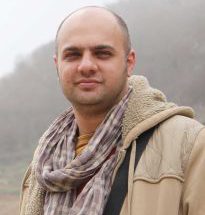
Kaveh Mazaheri
Kaveh Mazaheri (1981, Tehran, Iran) first worked as a film reviewer before he began to shoot his own films. So far, he has made four independent shorts and more than twenty documentaries for television. His most characteristic films include a documentary,
a Report about Mina (2015), and a short fiction, Retouch (2017).
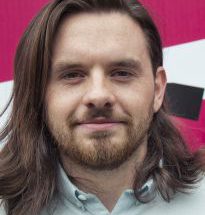
Sean Mullan
Sean Mullan (1992, Derry, Northern Ireland) is an artist based in South London who works in cinema, sculpture, sound and their mutual combinations. He studied Fine Arts at Wimbledon College of Art in London. He has participated in numerous solo and group exhibitions.
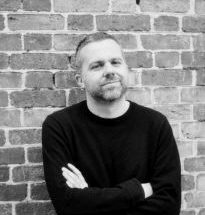
Yann Gonzalez
(1977, Nice, France) had shot six short films before introducing his debut Les Rencontres d’après minuit (You And the Night, 2013) at the Critics’ Week in Cannes. His film Les Isles (Islands, 2017) won the Best Short Film Award at the International Bratislava Film Festival. Un couteau dans la coeur (Knife + Heart, 2018) is his second feature film.
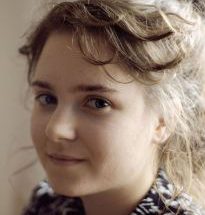
Brenda Lien
Brenda Lien (1995, Offenbach am Main, Germany) is an independent filmmaker and film music composer. She has been studying art with a special focus on film and animation at the University of Art and Design in Offenbach since 2012.